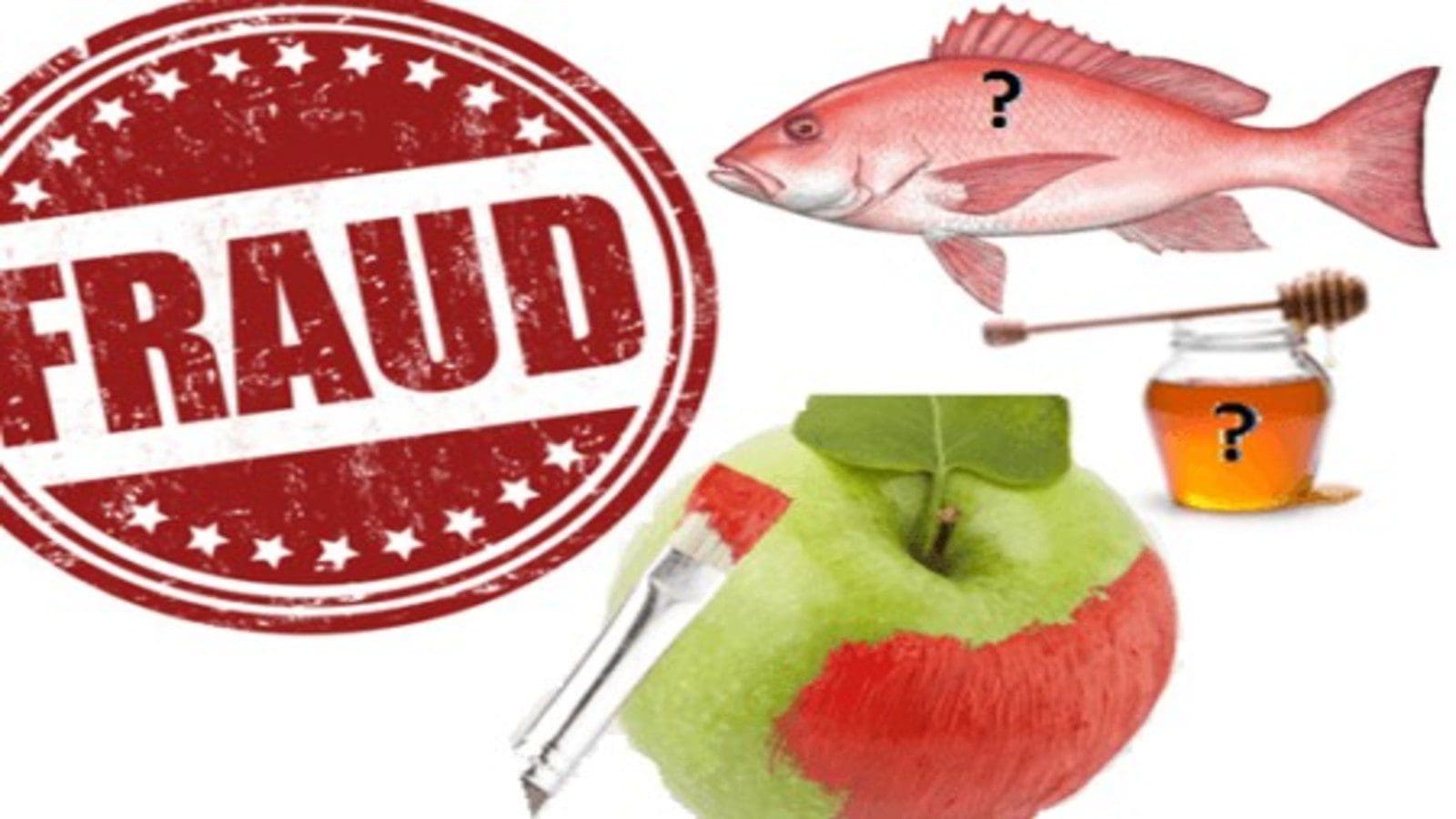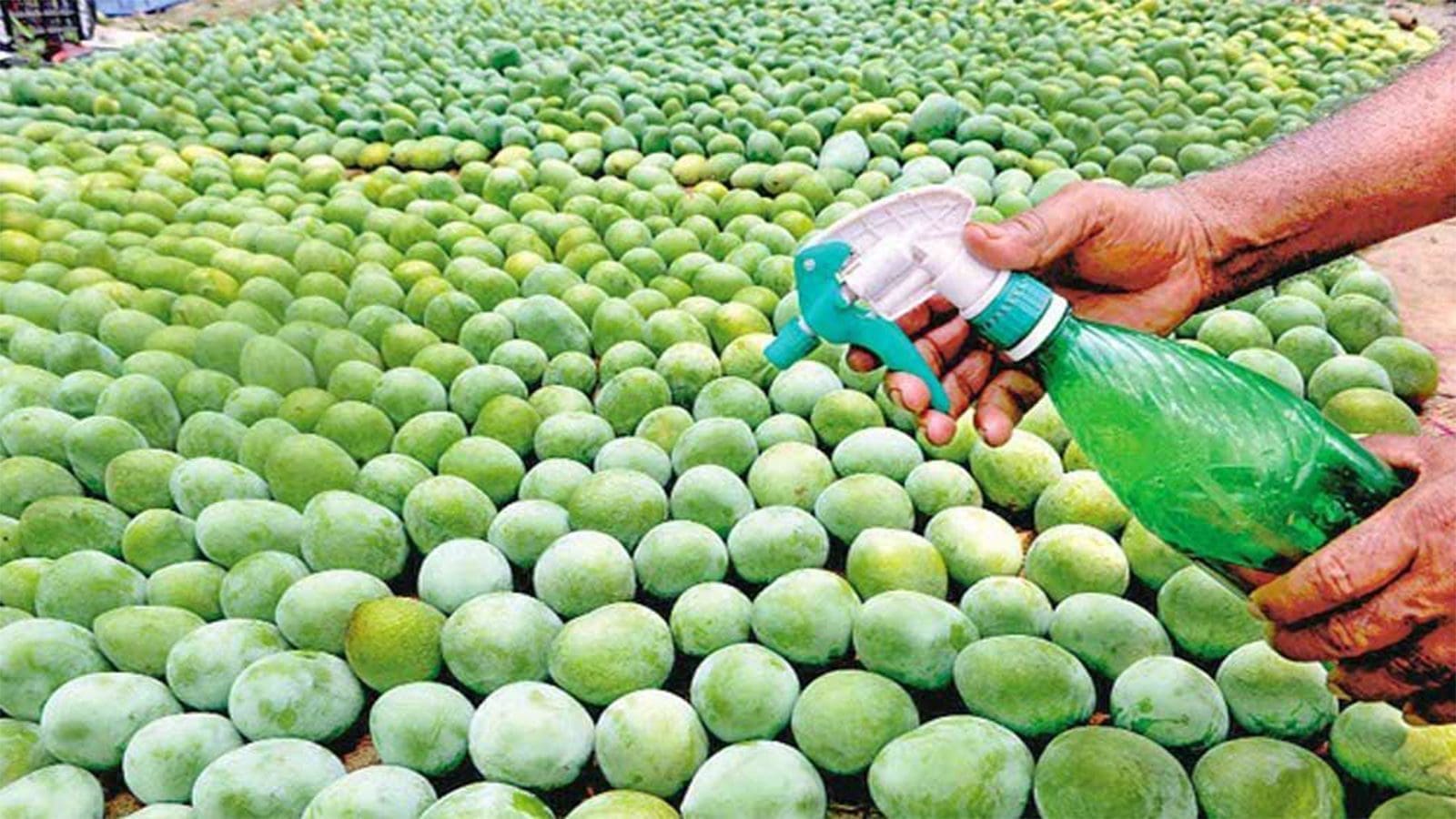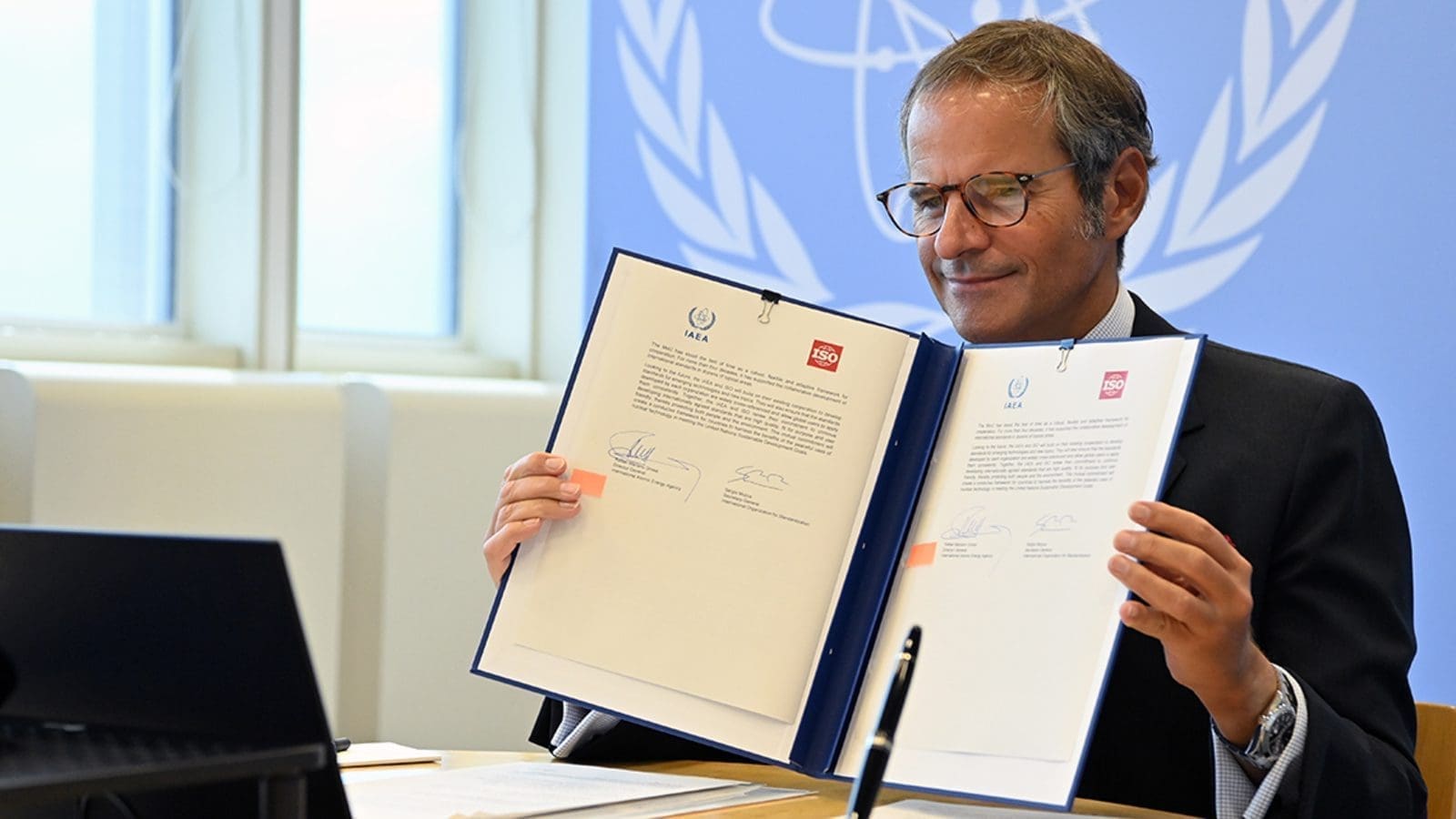GLOBAL – Food fraud, an economically motivated adulteration, is a food risk that is rapidly gaining recognition and concern.Cesare Varallo, Food Lawyer & Founder, FoodLawLatest.com and Dr. Hellen Onyeaka, Ph. D Lecturer, University of Birmingham dived into the conversation during the virtual Africa Food Safety and Quality Summit 2021.
They noted that Economically Motivated Adulteration (EMA), is a serious cause of public health food risks.The Food and Drug Administration (FDA) has defined EMA as, the fraudulent, intentional substitution or addition of a substance in a product for the purpose of increasing the apparent value of the product or reducing the cost of its production.
IFIS, a UK publishing organization reports that food fraud is estimated to cost the global food industry US$10-15 billion per year. UK Food Standards Agency (FSA), estimates that approximately 10% of food on UK supermarket shelves is adulterated. Nearly 28 percent of the food samples tested for quality were found to be adulterated, according to the 2018-19 annual report of the Food Safety and Standards Authority of India (FSSAI).
Food fraud can be perpetrated through a variety of approaches including, substitution, concealment, dilution, unapproved enhancement, counterfeit, mislabeling, and grey market forgery.
Food fraud is widespread in almost all foods people. The top 10 adulterated foods include, olive oil, fish, meat, milk products, organic products, wine, honey, coffee, juices, spices (vanilla, saffron).
It is estimated that about 57% of people who consume adulterated food experience some health challenges with 32% being children.
There are two types of food fraud that pose a risk to consumers’ health; direct and indirect food fraud. Direct food fraud risk occurs when the consumer is put at immediate or imminent risk, such as the inclusion of an acutely toxic or lethal contaminant; that is one exposure can cause adverse effects in the whole or a smaller at-risk population.
Indirect food fraud risk occurs when the consumer is put at risk through long-term exposure, such as the build up of a chronically toxic contaminant in the body, through the ingestion of low doses. Indirect risk also includes the omission of beneficial ingredients, such as vitamins.
Dr. Hellen Onyeaka, Ph. D Lecturer, University of Birmingham informed that there have been various cases of fraud globally e.g., the Spanish Olive oil fraud which resulted in the death of about 1000 people in Spain, the melamine scandal in china and the horse meat scandal in Europe.
Africa has also registered a fair share of food fraud. In East Africa some butchers use formalin, an industrial disinfectant, to preserve meat. Use of formalin in food can result in liver and kidney damages. In Ghana, Sudan IV dye is added to palm oil to increase its redness and thus its apparent quality for faster market clearance. Sudan IV is a reddish-brown dye often used to stain oils, waxes, greases and various hydrocarbon products. The International Agency for Research on Cancer (IARC) has classified it as a category 3 carcinogen.
In Nigeria etriol and other chemical agents are utilized to rapidly ripen foods. Honey, the world’s most adulterated product, is often sweetened using sweeteners such as sugar, sucrose.
Besides addition of compounds into food, adulteration can also take the form of mislabeling, e.g., changing the origin of a food item such as honey. Manuca honey from New Zealand is considered the best honey in the world. Surprisingly, the quantity of Manuca honey sold in Africa alone is more than the annual production and export amounts of the product in New Zealand, the country of origin.
Ethiopia also experiences this type of fraud in its local delicacy, ‘Injera’ where they use sodium benzoate as a preservative but fail to indicate it on the labels.
A research conducted in Ireland as of 2015, showed that only about 20% of maple syrup sold in the United Kingdom was from Canada. Sunflower oil is at times colored with dyes to improve its look and marketed as the more expensive extra virgin oil from Italy which does not undergo any form of processing.
There have also been issues with alcoholic beverages like vodka. Some years back, Chad reported an adulteration of vodka to contain methanol that resulted in a lot of deaths and the embargo on the sale of alcoholic beverages in the country.
Food integrity is about consumers having trust and confidence in the food they eat. The term food integrity has a global perspective on food issues – from soil to plate. The term goes well beyond food safety in capturing aspects of how food is produced.
“Food integrity entails questions like; Is it safe? Is it organic? Is it fair trade? Was the welfare of the animals respected? Is it authentic?” stated Onyeaka.
Challenges in SSA
In Sub-Saharan African (SSA) adulteration is compounded due to lack of enough regulatory oversight to detect food fraud hence almost no protection for unwary consumers. Regulatory agencies are more focused on the microbial safety of foods and not their authenticity.
“However, we cannot lay the blame on the regulatory agencies because they do not receive enough financial support from the government and they have a very wide coverage,” said Dr. Onyeaka.
According to Cesare Varallo, it’s not entirely true that more regulation is an answer to food fraud. More controls, more testing and investigative capacity from the competent authorities is an answer.
“More regulation is just increasing the cost. If nobody is checking, it’s a problem,” he said.
Another reason why fake food is spreading in Africa is because of lack of collaboration among the regulatory agencies. In Europe, there is the European Food Safety Agency (EFSA), that collaborates between the different food regulatory agencies of the individual countries.
Africa lacks the Rapid Alert System (RAS), for food and feed which is obtainable in other parts of the world. In areas where it exists, the regulatory agencies receive alerts weeks after the hazard has taken root in the country making such intelligence difficult to be actionable.
Reasons for rise in food fraud
The increasing supply chain complexity and the economic crisis that is putting a lot of pressure on prices is to blame for the spiking of fraud cases in the recent years. Weak sanctions and a lack of resources by food companies to invest in innovative solutions are also contributing factors.
“Keep into account that around the world, the food sector is made up of small & medium enterprises (SMEs)/micro-companies. This is true for Africa but also in Europe 95% of the companies in the food sector are SMEs. So, they don’t have all the resources they need,” Cesare said.
The challenging economic times with the pressure on food producers is a main trigger to food fraud. Additionally, Africa which should be the food basket of the world, is a net importer of food thus there is likelihood of adulteration, thanks to the long supply chain through which the foods go through before they get into the continent.
Impact of food fraud
Impact of food fraud can be far reaching; it can cut across from the consumer trust which is very important with regard to food business.
“An example is the horse meat scandal of Europe. There was a loss of consumer trust especially of the food vendor that the fraud was originally detected in, i.e., Tesco. Tesco suffered a 360-million-pound loss and their sales dropped by 48% due to the scandal. This is to show that food fraud is important,” commented Hellen.
She added that another impact is on crisis management and reporting especially with regards to brand reputation and the public health risks associated with such food fraud.
Covid 19 & food fraud
Covid 19 has been a big factor in food fraud in Africa, and there have been reports across different countries how adulteration has increased post-long term.
Covid 19 led to a shut down of a lot of businesses and the lockdown also affected many agricultural workers, production facilities were closed down and transportation became a bit more difficult.
According to Hellen, as the rest of the world gradually recovers from these effects, Africa is doing so at a much slower pace. She attributes food fraud to financial challenges and lack of adequate supply to meet demand.
The pandemic brought an increased demand in some core food items. This increased demand was met by supply shortage. There is a risk that was associated with a large stock of unsold products that were stored prior to covid 19 lock down. The lecturer informed that some unscrupulous retailers repackaged and relabeled them to sell as new products despite having expired.
Consumer responsibility
“Consumers naturally should have faith that the food they purchase and consume is safe for consumption, unfortunately, that is not the case,” said Hellen.
She added that there is vigilance that is required of the consumer to realize that food fraud is prevalent especially in Sub-Saharan Africa due to lack of awareness and reporting. Consumers should also have a bit of skepticism especially when the prices of food are less than what is expected.
“If it is too good too be true, then most likely it’s fake. We need to bear that in mind. There is need to buy from reputable agencies or brands because there is easier traceability,” she noted.
Industry responsibility
Industries have a role to play in ensuring that food fraud is limited. Varallo stated that industry players need to acknowledge the fact that fraud is most probably already in their supply chain.
“It is a fight you cannot win. You can just enhance your resilience and raise the bar for fraudsters. To enhance your resilience, you need to control 3 key factors; product to ensure it’s not adulterated, supply chain to know what’s happening and the product destination, and people who are the first barriers against food fraud,” he said.
He added that it takes a cross-functional and a multidisciplinary approach. Further, he enlightened that there are Global Food Safety Initiative (GFSI) certification schemes that pose some requirements to prevent food fraud.
Naturally the food industry has the Hazard Analysis and Critical Control Point (HACCP) which is more science based to prevent unintentional adulteration. However, it needs to start thinking about traceability and vulnerability to prevent food fraud.
The industry should leverage on Threat Assessment Critical Control Point (TACCP), a systematic method, to defend a food supply chain from intentional contamination, and Vulnerability Assessment Critical Control Point (VACCP) tools, the systematic prevention of any potential adulteration of food, whether intentional or not, by identifying the vulnerable points in a supply chain.
“I believe that to prevent food fraud we need to start thinking like the criminals. So, look for opportunities which the criminals can exploit within the food chain, just like the last speaker said, we need to nip it at the bud and not wait to use science-based approaches to prevent food fraud. We need to be able to detect where food fraud happens, the reasons why they happen, is there a breakage in the chain of supply which the fraudsters can exploit to perpetrate food fraud and block it at every step of the way,” Onyeaka advised.
Detecting food fraud
Substitution Fraud
In 2008, Chinese milk scandal was a food safety incident in China, involving milk and infant formula, and other food materials and components, adulterated with melamine. By November 2008, China reported an estimated 300, 000 victims with six infants dying from kidney stones and other kidney damage and a further 860 babies hospitalized.
Melamine has a very high nitrogen content and was added to milk to make it appear to have high protein levels as milk prices are dictated by the protein levels. The Kjeldahl testing method exhibited that the milk was of high quality as it measures the nitrogen levels, thus gave a leeway for perpetration of the fraud.
Consequently, the method for milk quality detection has shifted from kjeldahl method to the total quality & protein quality using immunoassay-based techniques that detects any milk dilutions.
Chromatography and spectroscopic fingerprints can also be used to detect melamine.
Rice fraud is also another form of substitution fraud where a different type of rice can be marketed as basmati rice. DNA based methods (PCR) can be used to differentiate diverse rice strains.
Geographic Fraud
This is where food is labelled as coming from one region yet it comes from another region. Protected Designation of Origin (PDO), is the name of a geographical region or specific area that is recognized by official rules to produce certain foods with special characteristics related to location. It guarantees that products such as Stilton cheese which must be produced, processed and prepared within their original geographical area using traditional methods.
Protected Geographical Indication identifies a product as originating in a particular area, which may be a whole country. It protects products such as Cornish Pasties which are linked to a geographical area where at least one stage of production, processing or preparation must take place.
Geographic food fraud can be detected using isotopic fingerprints as the soil in each part of the world is different.
Mitigation measures
The presenters highlighted that food fraud can be mitigated using the 8 pillars of food integrity as stated in the Elliots review on the integrity of the food supply chain, crafted for the UK’s government following the horse meat incident. It has been adopted by the whole of Europe.
The first pillar reiterates that food is consumer centric hence food safety and food crime should be given absolute priority over everything else. At each step of the way there should be zero tolerance for food fraud. This is easy as a lot of food products have ingredients from different parts of the world, so allowing only one product can encourage the likelihood of adulteration.
One of the key recommendations of the Elliots review is intelligence gathering. In Africa specifically, government and industry need to improve on the collection and sharing of information amongst themselves.
This is highly supported by laboratory testing which should be conducted to the highest standards to ensure appropriate and speedy action.
The food industry and regulators should introduce unannounced audits with emphasis to detect fraud. This is not possible without government support and legislations that will back them.
Leadership is also important in rooting out food fraud. Food regulatory agencies should consider the development of a dedicated Food Crime Unit (FCU). The UK has an FCU which is incorporated into the police force that is used to trace fraudulent activities within the food sector in association with the Food Safety Agency (FSA).
“The International Criminal Police Organization (Interpol), does huge yearly operations called OPSON against food fraud which involves a lot of African countries. Last year they seized a lot of counterfeit alcohol and pesticide contaminated goods. However, they cannot spot everything that’s going on so we have to look forward, we have to think to protect our company brand and consumers,” informed Cesare.
There needs to be a protocol for crisis management and recalls of food products.
“There was an outbreak of a foodborne illness as a result of consumption of contaminated milk in Nigeria. However, it was difficult to recall that particular product, because the government agencies and even the food producers do not have a crisis management approach to ensure complete food recall,” remarked Hellen.
Often times, the industry relies on retrospective data on previous occurrences to evaluate the kind of fraud that can be perpetrated, failing to recall that fraudsters are not static.
Both presenters concluded that there needs to be continuous modification of measures through investment on analytical testing strategies and financial support from governments to their individual food regulatory agencies to prevent and control the proliferation of food fraud.
Watch the two presentations on YouTube at FOOD AFRICA TV via these links; https://youtu.be/SnY6lXyPZ9Q ; https://youtu.be/lC_gVjJkPfk
About the Africa Food Safety & Quality Summit
The 2021 edition of the Africa Food Safety & Quality Summit was held virtually from Nairobi, Kenya. It brought together more than 1300 delegates from more than 70 countries in Africa, Asia, Europe and the Americas.
The Summit, which was addressed by more than 40 speakers from the private sector, Government ministries and agencies, NGOs and development institutions and academic and research institutes across Africa and beyond, highlighted the opportunities, challenges and trends in the management and practice of food safety, quality and compliance in Africa.
With plans to be an annual conference and expo, the Summit was sponsored by Ishida, Bruker, Minebea Intec and Bureau Veritas – some of the leading providers of various technologies and services to Africa’s food and agriculture industry.
The event’s strategic partners included; Fresh Produce Consortium (FPC), Consumer Goods Council of South Africa, Kenya Bureau of Standards (KEBS), Ministry of Health Kenya, Kenya Institute of Food Science and Technology (KIFST), Kenya Institute of Public Analysts of Nigeria (IPAN), Kenya Dairy Board (KDB), Food Science and Technology Platform of Kenya (FoSTeP-K), Retail Trade Association of Kenya (RETRAK).
The next edition of the Summit is slated for June 22-24, 2022, with plans to host a hybrid event, with a physical presence in Nairobi, Kenya and a virtual platform to enable attendees from across Africa to attend with ease.
More information about the Summit can be found on the website www.foodsafetyafrica,net/summit








